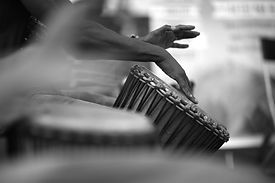
history
ABOUT SULTANS & SPICES
Zanzibar is a unique coral island lying in the Indian Ocean a short distance from Tanzania. With Pemba, and about 50 other islands. Zanzibar originally was an independent country until 1964 when it was united with Tanganyika to form Tanzania under President Julius Nyerere. Presently it has its own President and a degree of autonomy.
The island's history goes back many centuries. Its heyday came in the early 19th century when the Sultan of Muscat moved his court to Zanzibar. Spice cultivation was developed (particularly the clove tree), and the slave trade was at its height - Zanzibar became the most important town in East Africa.


stone town
STUNNING DOORS & NARROW ALLEYS
Zanzibar town is located midway along the West Coast of the Island. The old part of the town, know as Stone Town, is composed of a network of shady, winding narrow alleys between old stone buildings with ornately decorated entrances and balconies. Numerous, tine shops here sell everything under the sun. Along the seafront are located several luxury/middle class hotels, the old Sultan Palace (House of wonders), the old fort, restaurants and the docks.
You can spend many idle hours and days just wandering through the fascinating labyrinth of narrow streets and alleyways.
Stone Town was recently and deservedly declared a World Heritage Site by UNESCO.


stone town
STUNNING DOORS & NARROW ALLEYS
Zanzibar town is located midway along the West Coast of the Island. The old part of the town, know as Stone Town, is composed of a network of shady, winding narrow alleys between old stone buildings with ornately decorated entrances and balconies. Numerous, tine shops here sell everything under the sun. Along the seafront are located several luxury/middle class hotels, the old Sultan Palace (House of wonders), the old fort, restaurants and the docks.
You can spend many idle hours and days just wandering through the fascinating labyrinth of narrow streets and alleyways.
Stone Town was recently and deservedly declared a World Heritage Site by UNESCO.


stone town
STUNNING DOORS & NARROW ALLEYS
Zanzibar town is located midway along the West Coast of the Island. The old part of the town, know as Stone Town, is composed of a network of shady, winding narrow alleys between old stone buildings with ornately decorated entrances and balconies. Numerous, tine shops here sell everything under the sun. Along the seafront are located several luxury/middle class hotels, the old Sultan Palace (House of wonders), the old fort, restaurants and the docks.
You can spend many idle hours and days just wandering through the fascinating labyrinth of narrow streets and alleyways.
Stone Town was recently and deservedly declared a World Heritage Site by UNESCO.


music & culture
JOIN BELLEVUE IN MUSIC!
Sauti Za Busara Swahili Music & Cultural Festival
Sauti za Busara provides a platform for local musicians to experience music from other parts of the world, whilst introducing East African music to the visitors. In any society this kind of interchange is vital to the health and development of musical styles.
Sauti za Busara festival provides an example of an event designed to develop, in both locals and visitors, an appreciation of the uniqueness, wealth and diversity of music from the region. It shows there is a beauty in our traditional music, with employment and income to be gained in sustaining it.
Sauti za Busara has played an essential role in maintaining peace and stability in Zanzibar, through building intercultural understanding and respect. Furthermore, the festival brings a significant boost for the local economy.
Dates: February


religious festivals
EXPERIENCE THE JOYFUL 'EID'
Eid ul Fitr
Eid-ul-Fitr is the festival at the end of Ramadan, the month of fasting. Also known as Eid or Sikukuu (days of celebration, festival or holiday), this festival is a time of giving charity. The fasting of Ramadan is meant to remind people what life is like for there less fortunate brethren and the alms giving at Eid (known as zakat-el-Fitr) is a continuation along the same idea. Both fasting and the giving of alms are two of the five pillars of the Islamic faith.
Because the Islamic calendar is different from that of Christians, the dates for Ramadan and Eid change every year by about 10 days so check a local Islamic calendar if you're looking to visit Zanzibar during Eid. Ramadan is a holy month in which drinking, smoking, and eating during daylight hours for Muslims is prohibited. Dress codes should be strictly adhered to.
Some restaurants are closed during this month and outside of town it can be difficult to get any food at all during daytime hours during Ramadan. All discos are closed during Ramadan.
Eid is a joyful experience and everybody is out and about celebrating. In Zanzibar the partying continues for four solid days and many open areas around town and in the villages turn into festival venues.
In Stone Town, festivities can be seen at the Mnazi Moja grounds across the National Museum or at the Kariakoo fair grounds by the Main Post Office.


Mwaka Kogwa
A four-day-long celebration, Mwaka Kogwa is best observed at Makunduchi, a village in the south part of Zanzibar. The origins of this holiday are Zoroastrian (a Persian religion older than Islam). It is a celebration of the Shirazi New Year and some of the events include the burning of the hut and mock fights. These fights are between men who defend themselves with banana stems (in place of the sticks that were formerly used), and this fighting, in which everyone gets a chance, is said to let everyone air their grievances and so clear the air as the new year rolls in.
As the men fight, the women stroll through the fields singing songs about life and love. They are dressed in their best clothes and taunt the men after the fight is over. The festivities vary from village to village but Makunduchi is where the biggest events take place. All are welcome for the festival because it is a local belief that anyone without a guest for this holiday is unhappy.
The holiday is held every year around the third week of July, but check with us the official dates.

